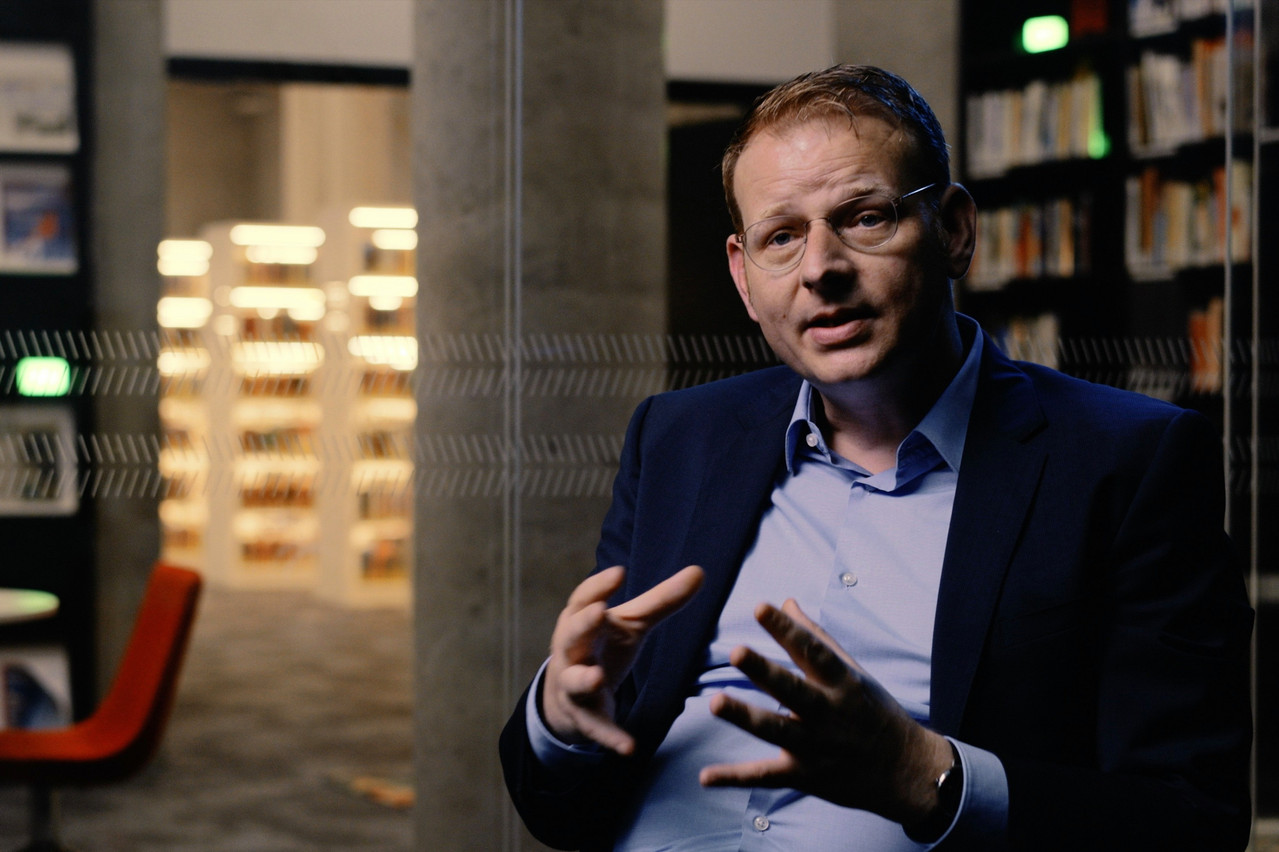Lydia Linna: Amongst your academic positions, you are the director of the coordination unit of the Interdisciplinary Center of Expertise “UniGR-Center for Border Studies.” Why is this centre so important, and what are some of the research priorities of the cross-border research network?
Christian Wille: Luxembourg is located in the centre of the Greater Region and borders Germany, France and Belgium. This means we are directly confronted with state borders and their impact on living and working in this area. The (UniGR-CBS) deals with such impacts and actively co-develops the border region. Therefore, border researchers from the six universities of the University of the Greater Region (UniGR) network work with stakeholders and make their scientific expertise available.
One focus is on the challenges of the cross-border labour market and the related issues of mobility, education, demography, and many more. Also central to the UniGR-CBS are issues of cross-border spatial development, which, in addition to the national spatial planning cultures in the Greater Region, concern a lot of other socio-economic issues that have become even more urgent with the current crises.
The Schengen agreement, which allows freedom of movement between countries, was signed on 14 June 1985 on the Moselle River. Many people--myself included--take it for granted today. Can you tell us why this agreement remains key for Europe’s economy and culture?
The free movement of persons in the Schengen area is a particularity to which we have almost become accustomed. However, the fact that the unhindered crossing of a Schengen border cannot be taken for granted was recently reminded by the covid-19 pandemic: In March 2020, Schengen borders were successively closed within a few days, massively restricting everyday life and work across borders. At that time, the UniGR-CBS immediately analysed the unprecedented Schengen borders closures for the Greater Region. Especially for young people in border regions, the closed borders were a new experience that hopefully raised awareness of the importance of Europe.
The refugee flows since the 2010s are also an ongoing reminder that freedom of movement in the Schengen area is a special feature. It can be described as a privilege. While Europeans can generally cross the Schengen borders unhindered, they remain hard and insurmountable borders for many non-Europeans.
With this ease of movement, we can almost forget that we’re crossing borders when we travel from one country to the next, say, from Luxembourg to France, or from Austria to Slovakia. Would you say that borders continue to exist within the European Union?
Borders are instruments of state power and regulate the circulation of people and goods. The fact that Schengen borders also perform this filtering function became clear even before the covid-19 pandemic: in 2015, because of refugee flows and terrorist attacks, some EU states introduced temporary border controls, which were also visible in Luxembourg at the time.
In the European Union, the filtering function of borders will not only continue to be effective, it will even intensify in the future. On the one hand, the inequality between those who can easily cross a border and those for whom a border remains insurmountable will become even more acute. On the other hand, new forms of borders will develop that are less and less recognisable as such and optimise filtering processes. For example, the outsourcing of borders, i.e., the transfer of filtering tasks to entities beyond one’s own territory, or the increasingly powerful digital capture and processing of biometric data.
The grand duchy relies on people that come from its neighbouring countries--France, Germany and Belgium--to work. Thousands of cross-border workers come to Luxembourg every day. Was this possible even before the Schengen agreement was signed? Has the Schengen agreement facilitated the economic development of Luxembourg in particular?
After Switzerland, Luxembourg is the country in Europe with the most cross-border workers. Their indispensable role for the economy and labor market in the grand duchy cannot be overlooked, but this was not always the case: In 1960, only about 5,000 cross-border workers were registered in Luxembourg; by the early 1970s, their number had already doubled. So even before the Schengen agreements, Luxembourg was attracting cross-border workers at an increasing rate. However, at that time they were regularly checked at the borders, even if they used the special car lane that had been set up in some places to speed up border crossing.
The Schengen agreements certainly facilitated cross-border commuting and thus also contributed to development in Luxembourg. I see a larger and probably more significant contribution in the EU’s fundamental right to free movement of workers, which was anchored as early as the 1960s, and in the intergovernmental coordination of social security systems. These are important cornerstones for cross-border employment.
Is the UniGR-Center for Border Studies organising any upcoming events or conferences where people could learn more?
The UniGR-CBS is organising a public study day on current challenges for cross-border labour markets on 13 July at the University of Luxembourg. Experts from the Greater Region and Switzerland are invited there to discuss how strategies can be developed to jointly overcome the current health, energy, demography, economy crises in border regions.
The study day will conclude with a round table discussion and is organised by the UniGR-CBS working group “” and the research group “” More information is available on the , which is looking forward to a lively participation of interested experts and citizens. You are cordially invited to attend the event!
The combines the expertise of border researchers of its six partner universities. Researchers investigate socioeconomic and sociocultural issues and provide practice-oriented solutions for challenges in border regions. They cooperate with regional stakeholders, meet in interregional working groups and offer the tri-national with a spatial and cultural specialisation.
